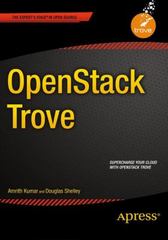Question
1. Include an indexOf(Object) method in your List interface. It should return the position of the first occurrence of the given object in this List.
1. Include an indexOf(Object) method in your List interface. It should return the position of the
first occurrence of the given object in this List.
Include a stub for this method in your LinkedList class. Test using DriverArrayList.
/** @return the position of the first occurrence of the given Object in this List,
or -1 if it is not in this List */
int indexOf (Object obj);
Hint: No casting should be needed here.
2. Include a contains(Object) method in your List interface. Include a stub for this method in
your LinkedList class. Uncomment the appropriate lines of the Driver to test your solution.
/** @return true only if the given Object is in this List */
boolean contains (Object obj);
Hint: Use indexOf
3. Include a toString() method in the ArrayList class which will produce a String representation
of this List. (Why is this method not needed in the List interface?) The items in the List should
be separated by commas, and enclosed in square brackets: [a,b,c]
Note that there is no comma after the last value.
An empty List should appear this way: [ ]
Test your solution by uncommenting the appropriate lines of the Driver used in problems 1 and 2.
/** @return this List as a String */
public String toString();
Hint: Handle the empty List as a special case. Then you can include the first value in your result
before entering the loop. > > > CODE TO BE MODIFIED BELOW:: > > >
LIST INTERFACE
package list;
public interface List
int size();
/** Clear this List */
void clear();
/** @return true iff this List is empty */
boolean isEmpty();
} >>>> ARRAYLIST CLASS
package list;
public class ArrayList
{
//instance variables
private int size = 0;
private E[] values;
//default constructor
public ArrayList()
{
this (10);
}
//parametrized constructor
public ArrayList(int cap)
{
values = (E[]) new Object[cap];
}
//implementing abstract functions from interface
public E get (int ndx)
{
return values[ndx];
}
public E set(int ndx, E value)
{
E result = values[ndx];
values[ndx] = value;
return result;
}
public void add(E value)
{
add(size,value);
}
public void add(int ndx, E value)
{
if (values.length == size)
alloc();
for(int i = size; i > ndx; i--)
values[i] = values[i-1];
values[ndx] = value;
size++;
}
private void alloc()
{
E[] tempArray =
(E[]) new Object[2*values.length];
for(int i = 0; i < size; i++)
tempArray[i] = values [i];
values = tempArray;
}
public E remove(int ndx)
{
E result = values[ndx];
for(int i = ndx; i < size-1; i++)
values[i] = values [i + 1];
size--;
return result;
}
public int size()
{
return size;
}
public boolean isEmpty()
{
if(size==0)
return true;
return false;
}
public void clear()
{
for(int i=0;i values[i]=(E)new Object(); size=0; } } >>>>>> NODE CLASS package list; public class Node package list; public class LinkedList } >>>>> DRIVERARRAYLIST CLASS package listDriver; import list.*; public class DriverArrayList { /** * This main method tests the ArrayList class */ public static void main (String [] args) { List System.out.println ("Testing problem 1"); friends.add ("joe"); friends.add ("mary"); friends.add ("jim"); friends.add ("joe"); // Lists may contain duplicate elements friends.add (2, "sally"); // Insert at position 2 friends.remove (0); // Remove joe at position 0 if (friends.size() != 4) System.err.println ("Error in add, remove or size"); String s1 = "sal"; String s2 = "ly"; // s1 + s2 is "sally" System.out.println ("sally is at position " + friends.indexOf(s1 + s2)); // should be 1 if (friends.indexOf(s1+s2) != 1) System.err.println ("Error in indexOf"); //////// Uncomment the following lines when ready for problem 2 // if (friends.contains ("Jim")) // System.err.println ("Not correct"); // if (!friends.contains ("jim")) // System.err.println ("Not correct"); // friends.add ("mary"); // if (friends.indexOf("mary") != 0) // System.err.println ("Not correct"); ////////////// Uncomment the following when ready for problem 3 // System.out.println (" Testing problem 3"); // System.out.println ("The list of friends is " + friends); // friends.clear(); // if (! friends.isEmpty()) // System.err.println ("Error in clear or isEmpty"); // System.out.println (friends); // for (int i=0; i< 25; i++) // friends.add ("str" + i); // System.out.println (friends); // // Testing for efficiency // for (int i=0; i<500000; i++) // friends.add ("str" + i); // for (int i=0; i<100000; i++) // if (friends.indexOf(new String("str3")) != 3) // System.err.println ("Not correct"); // System.out.println ("Testing finished"); } }
Step by Step Solution
There are 3 Steps involved in it
Step: 1

Get Instant Access to Expert-Tailored Solutions
See step-by-step solutions with expert insights and AI powered tools for academic success
Step: 2

Step: 3

Ace Your Homework with AI
Get the answers you need in no time with our AI-driven, step-by-step assistance
Get Started


